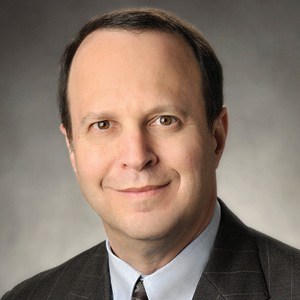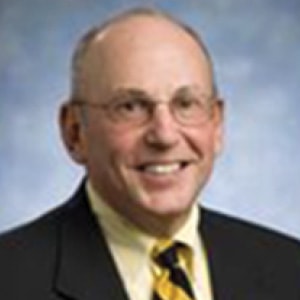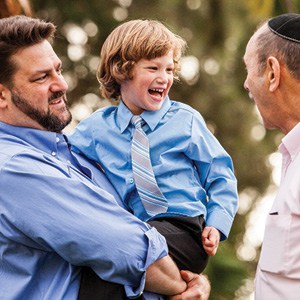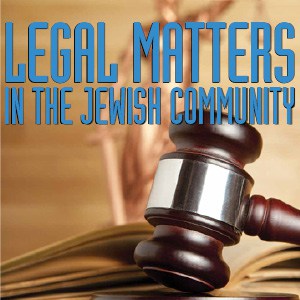Ruth Bader Ginsburg donates $9,000 to Israeli schools teaching Arabic and Hebrew
Supreme Court Justice Ruth Bader Ginsburg says she is donating $9,000 to a network of bilingual Hebrew and Arabic schools in Israel.
The grant to schools operated by Hand in Hand comes from prize money that Bader Ginsburg, who is Jewish, was awarded in winning the 2019 Gilel Storch Award from a Stockholm-based organization called Jewish Culture in Sweden, Haaretz reported.
Ginsburg decided to divide the award of 250,000 Swedish krona (almost $27,000) evenly between Hand in Hand and two other organizations that also work to promote tolerance, one in Sweden, the other in the United States.
“From the earliest grades, the children are taught to speak, read, and write in Hebrew and Arabic. They learn the shared values of Jews, Muslims, and Christians, among them, helping others, welcoming guests, opposing oppression, and caring for the earth,” Ginsburg says of her decision to grant part of her award to Hand in Hand during her acceptance speech.
Hand in Hand thanked Ginsburg in a post on Facebook: “Justice Ginsburg has fought her entire career for equality, civil rights, and democracy, and this award credits her lifelong commitment to enshrining these values in the American legal system. We feel incredibly honored that Justice Ginsburg wished to include Hand in Hand in this distinction.” (JTA)
Bill Nusbaum named to Virginia Israel Advisory Board

Bill Nusbaum.
Richmond, Va.—On behalf of the Virginia House of Delegates, Speaker Kirk Cox has named Bill Nusbaum to the Virginia Israel Advisory Board (VIAB). Nusbaum is an attorney with Williams Mullen.
VIAB is a government agency that helps Israeli companies locate and grow their U.S. operations in Virginia and to team up with Virginia businesses to provide innovative Israeli technology. VIAB seeks to leverage synergies between Virginia and Israeli businesses to increase direct foreign investment in Virginia, bilateral trade, and lasting partnerships, focusing on manufacturing, maritime, military-related, and agribusiness industries.
Dov Hoch, VIAB executive director, says, “I look forward to working with Bill on Commonwealth-wide economic development undertakings like the Israel Virginia Defense Contractors Partnership Program which he advised on and participated in, as well as the VIAB Maritime Program which will bring port and shipping related Israeli companies to the Hampton Roads region.”
Nusbaum is a partner in Williams Mullen’s Finance and Real Estate Section. For 39 years, Nusbaum has represented clients in commercial real estate transactions, economic development incentives, tax-exempt housing, industrial development and qualified 501(c)(3) bonds, hospitality transactions and alcoholic beverage licensing. His experience includes the representation of owners of shopping malls, strip shopping centers, apartment projects, hotels, and office parks in development, leasing, and management matters. He also has represented both localities and prospects in economic development projects.
Nusbaum has served on numerous boards and held prominent positions with many associations and committees throughout Hampton Roads and statewide. He is a past president and honorary life director of the Foodbank of Southeastern Virginia, past chair of the Hampton Roads Workforce Council Board, past chair of the Virginia College Building Authority, past chair of the Virginia State Bar Real Property Section, and past chair of the Norfolk City Democratic Committee. He currently serves on the Norfolk Airport Authority Board of Commissioners, the Virginia PACE Authority board of directors and Tidewater Community College’s Workforce Solutions Advisory Committee and is a Community Senior Fellow of Norfolk State University’s Robert C. Nusbaum Honors College.
In the Jewish community, Nusbaum is a former president, honorary director and trustee of Ohef Sholom Temple, a former vice chair of the Virginia chapter of the Anti-Defamation League, a long-time member of the United Jewish Federation of Tidewater’s Community Relations Council, a former co-chair of its Legislative Committee and a regular participant in Virginia Jewish Advocacy Day.
Williams Mullen is a regional, full-service law firm with more than 230 attorneys in offices across North Carolina, South Carolina, Virginia and Washington D.C.
Alan B. Rashkind selected 2019 Eggleston/I’Anson Professionalism award winner

Alan B. Rashkind, Esq.
The Norfolk & Portsmouth Bar Association’s highest honor award, the 2019 Eggleston/I’Anson Professionalism Award, was presented to Alan B. Rashkind by the association.
Rashkind is an attorney with Furniss, Davis, Rashkind and Saunders in Norfolk.
The Eggleston/I’Anson Professionalism Award is named after former Virginia Supreme Court Chief Justices John W. Eggleston of Norfolk, and Lawrence W. I’Anson, of Portsmouth.
The award honors present and former members of the NPBA who have exemplified the highest standards of professionalism throughout their careers.
The award’s stated qualifications are:
- The award recipient should, over a substantial period of time, have demonstrated:
- 1. Respect for the law, the judicial system and the legal profession;
- 2. Respect for clients, court personnel and other counsel; and
- 3. Honesty, candor, fairness and competence before the Court and with counsel.
- The award is intended to recognize and honor personal and professional qualities, reputation, and conduct. Leadership activities and service within the bar or the community in general, while probative of professionalism, should not be considered essential in the screening and selection process.
- Pro bono service should be considered in the screening process.
- Award recipients should be role models for other attorneys, particularly younger attorneys.
Rashkind is a Fellow of the American College of Trial Lawyers, a Fellow of the American Bar Foundation, and a Fellow of the Virginia Law Foundation. Rashkind is listed in The Best Lawyers in America, Virginia Super Lawyers, Virginia’s Best Lawyers, Who’s Who in America and Who’s Who in American Law. He has also been selected by his peers as a member of Virginia’s Legal Elite.
Rashkind is a member of the Virginia State Bar, the Virginia Bar Association, the Virginia Association of Defense Attorneys, the Federation of Defense & Corporate Counsel, the Defense Research Institute, the Local Government Attorneys of Virginia, the American Bar Association, the Federal Bar Association, the Norfolk-Portsmouth Bar Association, and the Virginia Beach Bar Association.
In addition, he is chair of the Board of Trustees at Randolph-Macon College and was an adjunct professor of insurance law at the Marshall-Wythe School of Law, College of William and Mary.
Philanthropy and estate planning as a family
 Estate planning can be a daunting process that prompts big questions about individuals and how they want to be remembered. At the Tidewater Jewish Foundation, one of our primary responsibilities is to simplify this process and connect clients with the resources and expertise needed to build impactful and lasting Jewish legacies.
Estate planning can be a daunting process that prompts big questions about individuals and how they want to be remembered. At the Tidewater Jewish Foundation, one of our primary responsibilities is to simplify this process and connect clients with the resources and expertise needed to build impactful and lasting Jewish legacies.
In addition to a highly trained and knowledgeable staff, TJF has strong relationships with the top legal and financial advisors in Tidewater. This team of professional advisors, in conjunction with access to a library of resources, is here to serve donors, their families, and the Jewish community.
When ready to develop a legacy and estate plan, consider:
Think about sharing plans with grown children and other beneficiaries.
Adult children are often in excellent positions to provide feedback or input on plans that, in all likelihood, will have a greater impact on their lives than on their parents’ lives. A transparent, collaborative process can reduce conflict down the road and helps the next generation make informed decisions about their own lives and finances.
In addition, sharing charitable plans with the beneficiary organization helps ensure that a donor’s intentions are met. TJF encourages donors to share their plans so it can provide donors and their advisors with information to make impactful, tax-wise, philanthropic decisions. Many donors hope that their philanthropic values are passed on to their children. If TJF knows this, it can help families design a plan that will encourage multi-generational giving. It’s also information that helps partner organizations plan for the future so that, together, TJF can be the best possible resource for the Tidewater Jewish community.
The Jewish tradition of ethical wills can help pass on more than just financial wealth.
An ethical will, also known as a spiritual or legacy letter, is an ancient Hebraic tradition that has been used for centuries to preserve and articulate family values, beliefs, and stories. Often used in tandem with a legal will or estate plan (and not in lieu of), ethical wills can include family or personal histories, life lessons, information about important causes or organizations, and blessings for the future. It can also include lists of financial advisors, assets, and debts.
Every ethical will is different. They can come in a variety of different forms such as video recordings or letters to loved ones. In some cases, ethical wills can be used to explain various bequests or estate plan details to further ensure that those plans are not questioned in the future. TJF works with a program called Ethical Wills: a Values Vault for Future Generations that provides free and easy to use resources.
TJF is the community resource.
Tidewater Jewish Foundation is here to help local Jewish organizations and community members plan for the future and meet the challenges of today. This takes place in a variety of ways including fund management, endowment development, and grant making.
For more information about estate planning, ethical wills, or local professional advisors, contact Scott Kaplan at 757-965-6109, skaplan@ujft.org or Kaitlyn Oelsner at 757-965-6103, koelsner@ujft.org.
This Jewish lawyer wants to break the back of the violent white nationalist movement
WASHINGTON (JTA)—It’s not the speech, it’s the conspiracy.
Roberta Kaplan, the lead counsel on one case that changed U.S. history—upholding the rights of same-sex spouses—wants to make history again and scare white nationalists intent on violence into thinking again.
Government efforts to confront the rise of white supremacism have been inhibited over the last decade by free speech considerations: However vile the expressions of people who express hatred toward Jews, blacks and other minorities, the argument goes, the expressions are speech protected under the First Amendment.
Free speech protections are why the American Civil Liberties Union stepped in ahead of the Aug. 12, 2017, neo-Nazi march in Charlottesville and sued on behalf of the marchers to assemble at their preferred venue, a park in the center of the Virginia university town.
The march turned deadly. Kaplan, reviewing the evidence in its aftermath, saw in online conversations between the organizers not speech, but a conspiracy to commit deadly violence.
“They intended for violence to happen, it did happen and they celebrated it,” Kaplan says. “I think it is important for Americans to hear what these men and groups did, what they intended to do, how they celebrated and what a grave threat to our system they are.”
Kaplan and another lawyer, Karen Dunn, are leading a team that has sued 25 of the alleged organizers of the Charlottesville violence under post-Civil War statutes that cracked down on Ku Klux Klan terrorism in the South aimed at keeping blacks from exercising their newly acquired civil rights. A 1983 amendment to the Ku Klux Klan Act, an 1871 law, allows victims of the terrorism to sue for monetary compensation, not just the government.
Their suit, known as Sines v. Kessler, essentially says the defendants used websites and other social media not just to share protected free speech, but to coordinate and plan the racially motivated violence that occurred at the “Unite the Right” rally in Charlottesville.
“The Defendants in our case used various forms of social media to coordinate their illegal conspiracy to commit racialized violence in Charlottesville in August 2017,” Kaplan said in a statement in February after a judge said Twitter and other platforms must turn over material.
A nongovernmental organization has raised $10 million toward paying the costs, an official of the group told JTA, and is still fund-raising. Integrity First for America, according to its website, is “dedicated to holding those accountable who threaten longstanding principles of our democracy—including our country’s commitment to civil rights and equal justice.” But for now, its only brief is the Charlottesville case.
Amy Spitalnick, the group’s executive director, in recent months has explained the lawsuit in Jewish forums, including to the Jewish Council for Public Affairs and the American Jewish Committee.
Using subpoenas, Kaplan’s team has obtained reams of information. Although part of the legal work by a team of about 12 lawyers is pro bono, there are steep costs involved in sorting through the material and preparing incriminating statements for use throughout the process, as well as for security for the lawyers.
Spitalnick says the lawsuit was critical, especially because the government during the Trump administration has rolled back efforts to track and prevent white supremacist violence. (The Department of Justice has chosen not to sue the Charlottesville defendants under the same 1871 Klan law.)
“The infrastructure that’s meant to address this sort of thing has actively been dismantled,” Spitalnick says.
The point is not to make the 10 plaintiffs rich, Kaplan says. It’s to create a disincentive for anyone to carry out the violence again.
“One point of this case is to make it clear to anyone considering this, if you do that, there will be very large judgments against you that will follow you until they are paid,” she says, noting that it is unlikely plaintiffs will be able to collect, in part because some of the defendants are in hiding and others are broke. “Our hope is that it will act as a deterrent for people to engage in organized racialized violence.”
Kaplan, Dunn and other lawyers involved very much want the case to come to trial and have the same impact as other high-profile cases. Kaplan cites the Scopes Monkey Trial of the 1920s, which turned into a national lesson on evolution, and the Proposition 8 case, that together with the lawsuit she took to the Supreme Court (and won in 2013) on behalf of a Jewish woman, Edie Windsor, helped turn American opinion around on gay marriage.
The 112-page complaint, which was filed in October 2017, reads less like a legal document and more like one of those book-length reconstructions of actual events, where the reader knows the awful outcome and still turns each page. (Norman Moon, the U.S. District Court judge considering the case, said in a separate filing that the complaint’s length is “pushing the limits” of federal requirements, but allowed it.)
The complaint, in spare language, forcefully makes the case that ideology and actions are inextricable.
“Defendants brought with them to Charlottesville the imagery of the Holocaust, of slavery, of Jim Crow and of fascism,” it says. “They also brought with them semi-automatic weapons, pistols, mace, rods, armor, shields and torches.”
The plaintiffs got a break when Unicorn Riot, an alternative media site, posted hacked exchanges between the plaintiffs on Discord, a chat site for gamers. Kaplan selected individual defendants based on evidence in the chat rooms of them organizing the violence in Charlottesville.
“Everyone we sued as a defendant in the case was pretty involved in the intricate planning of what happened,” Kaplan says.
Among the 25 defendants are Jason Kessler, who with ACLU assistance secured the permit for the protest against plans to remove a statue of Confederate Gen. Robert E. Lee; Richard Spencer, who coined the term “alt-right” and founded a “think tank” propagating white nationalist ideas; Andrew Anglin, the publisher of the neo-Nazi site The Daily Stormer; and James Fields, who was sentenced to life in prison for the car-ramming attack that killed a counterprotester, Heather Heyer, and injured 20 others.
Also named are the white supremacist groups Identity Evropa, Traditional Worker’s Party, League of the South and iterations of the Ku Klux Klan whose members were present.
A range of channels Kessler and a colleague set up on Discord run from the practical (“lodging_wanted,” “shuttle_service_information”) to the ideological (“dixie-lyrics”) to the tactical (“gear_and_attire,” “safety planning”).
On page 76 of the complaint, the plaintiffs note that a co-conspirator, identified only as Tyrone, in a channel called “virginia_laws” nearly a month before the rally asks: “Is it legal to run over protesters blocking roadways? I’m NOT just shitposting. I would like clarification.” On page 77, it notes that on the day of the rally, “at approximately 1:40 pm, in furtherance of the conspiracy, Defendant Fields drove his Dodge Challenger onto Fourth Street, idled for a moment while his vehicle faced the peaceful protesters, and then deliberately accelerated into the crowd.”
Judge Moon has dismissed filings from multiple defendants who want the case dismissed on the basis of freedom of speech and gun rights. Spencer, filing for himself—he has said he could not find a lawyer willing to represent him—argued that the complaint weaves together “scattered” statements and acts and without foundation attaches to them “sinister motives.” He calls the complaint “lawfare,” the practice of using the courts to punish and silence a political opponent.
The 10 plaintiffs also were strategically chosen to represent the scope of the alleged targets. Among them are Rev. Seth Wispelwey, a pastor allegedly assaulted during the protests who has since suffered PTSD; Marcus Martin, an African-American man who was injured when he moved to push his fiance out of the way of Fields’ car; and Hannah Pearce, a member of the city’s Congregation Beth Israel, who allegedly was harassed, intimidated and assaulted during and after the event.
Kaplan says that she and her office staff watched Charlottesville unfold on folding chairs on Aug. 12, 2017 (she had just moved into new offices in the Empire State Building) and within days she was in the town seeking appropriate plaintiffs.
That’s when she understood that the case could be best made under anti-conspiracy laws.
(Moon for now has dismissed the complaints filed by Pearce, the Jewish woman who was hit by a “foul liquid” and who wore a Star of David and carried a rainbow flag while protesting against the neo-Nazi march. He has concluded that she, alone out of the 10 plaintiffs “has not sufficiently alleged her injuries were caused by overt acts committed in connection with Defendants’ conspiracy.”)
Kaplan says her Jewish identity drives her in this case, just like the Windsor ruling. She celebrated that victory with a sermon she delivered at her Manhattan synagogue, Congregation Beth Simchat Torah.
“It’s pretty hard to shock me, and the one thing that I found in this case to be really quite shocking is that while all these defendants hate blacks and LGBT, are not thrilled with Hispanics and women, the one element that is their raison d’etre is anti-Semitism,” she says.
Kaplan’s wife is related by marriage to Sigmund Warburg, the prominent German Jewish businessman who said dismissively of the Nazis in 1930, “once they are in government they will immediately become, first, more sensible and, secondly, once again less popular.”
She says she is reminded constantly of Warburg and his unfounded certainties watching current events in the United States, including recent arson attacks on synagogues in Chicago and Boston.
“These are not one-off events,” she says. “It’s part of a much larger crisis of anti-Semitism and racism and violent hate.”
Ron Kampeas

